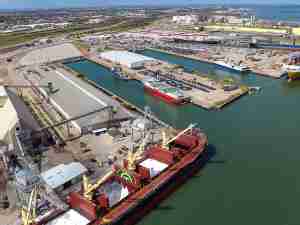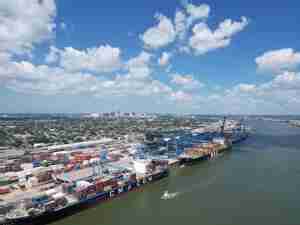The strike, now in its second week, has dented exports of metals, fruit and wine to Europe and Asia and slowed imports of automotive parts after nearly two-thirds of logistic group Transnet's 54,000-strong workforce joined in. The industrial action has also hit commuter rail links, causing travel headaches for millions of workers.
The United Transport and Allied Trade Union (Utatu) and the South African Transport and Allied Workers Union (Satawu), represent 85 percent of Transnet's workforce.
"We are hoping that we can return to the table as early as today in order to start engaging meaningfully to try to resolve this," said Transnet executive Pradeep Maharaj, adding that 44 percent of the company's staff are at work.
He said the container sector in ports and rail operations were hardest hit so far and the company was focusing on moving bulk commodities.
Maharaj did not want to elaborate if Transnet may be willing to get closer to the union's demand of a 12-13 percent pay rise. Transnet has said it cannot afford more than 11 percent.
Export Cars
South Africa's automotive sector has been badly affected, with manufacturers struggling to get parts and to export their cars, said David Powels, president of the National Association of Automobile Manufacturers of South Africa (Naamsa).
"Day by day plants are shutting down. In another 2-3 days, all the automotive companies will largely be shut down because we cannot secure the inbound logistics chain," he told Reuters.
Automaker BMW said would have a backlog of 2,000 export cars if the strike goes beyond this week.
The local automotive industry is one of the country's largest manufacturing sectors, contributing nearly 6 percent to GDP in 2009, while exports of vehicles and components made up 11 percent of total exports last year.
So far fuel supplies in South Africa and coal shipments to Europe and Asia have not been disrupted, officials said.
The strike is the latest protest in the country ahead of next month's soccer World Cup, and FIFA said imports of some equipment for the event have been affected.
The govnerment said it was concerned about the impact of a protracted strike on the economy.
Anglo American Plc's iron ore unit in South Africa declared force majeure on shipments last week, joining other global metal exporters including Xstrata, which said it could not supply ferrochrome to its customers.
Producers of fruit said they were already running out of storage for produce they could not ship and wine makers said exports had stopped.
Economists estimated the impact in the hundreds of millions of rand, but said it would quickly rise to billions as the industrial action drags on into this week.
Analysts and the central bank have criticised the unions, saying pay rises well above the 5.1 percent inflation rate would slow South Africa's economic recovery.
Utatu and Satawu also began a strike over wages at South Africa's Passenger Rail Agency (Prasa), halting all commuter rail operations.
"We want 16 percent across the board. Petrol is expensive, electricity and everything is going up but our own wages are still the same. We can't live with the 5 percent increase Prasa is offering," Tyrone Cupido, a father of two school-going children, told Reuters in Cape Town.
Separate talks were being held to resolve this dispute, Utatu said. (Reuters)










